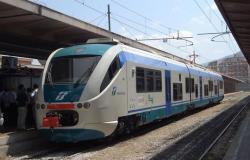Economy
Of Giovanni Vasso – April 25, 2024
Before creating differentiated autonomy, Italy should be seriously united, at least according to Svimez. Which had the merit of bringing substance to a debate which, as always happens when Italian politics is involved, becomes impoverished in content, ending up transforming into yet another rustic challenge between ultras, ready to do anything to have a statement press to launch, a decimal in the polls to conquer. And while the parties become passionate about parliamentary rights, the stills of voting, the formalities to validate it, the absence of the League, who has the right to call a vote and who to participate in it, Svimez, in a hearing before the Parliamentary Commission for The implementation of fiscal federalism has brought pressing topics, issues and issues to the table. First of all, there is the issue of the Lep, the essential levels of performance, which for Svimez should “find full recognition in national legislation regardless of the so-called differentiated autonomy” if the objective is “to make effective the principle of equal dignity of access to services for citizens and businesses throughout the national territory”, that is, if we want to finally make Italy a united country and not overcome the North-South divide. When we talk about Lep we should (also) talk about infrastructural equalization. That is, investments to be made to make Italy a country in which, from Bolzano to Reggio Calabria, everyone can have access to the same rights and the same services. Today, however, it happens that those born in Alto Adige have the possibility, as the Court of Auditors has revealed in recent days, of living sixteen years longer in good health (69.3 years) compared to a Calabrian citizen (53.1 ). Stuff, so to speak, which is inside or rather is the reason for the Pnrr. “If the LEPs have the ultimate aim of guaranteeing uniform levels of services across the national territory, as well as their precise definition and financing, it would be necessary to proceed, at the same time, with the leveling of the infrastructural facilities between territories, a necessary condition to allow the decentralized administrations to provide adequate levels of services”, ruled the Svimez analysts. But the North-South divide is not only in services. It is also, or perhaps above all, in economic capabilities. We have been telling ourselves for months now that the South, with the Mediterranean’s newfound protagonism on the global scene, will be the new El Dorado. Or, at least, the strategic pole, Europe’s springboard towards Africa and the Near and Middle East. The government, as is known, is focusing strongly on the South and has launched the single SEZ strategy to give a boost to southern development. Svimez, however, believes that, with differentiated autonomy, there is a risk of emptying the project of meaning (and effects). According to director Luca Bianchi, these are “two incompatible models: on the one hand, correctly, we try to reconstruct a unity of interventions for the South through the Single Zes, which involves, in part, a centralization of strategic choices by the government; on the other hand, however, we are trying to create differentiated autonomy with the risk of further fragmenting public policies in this country. The differentiated autonomy plan seems to want to sharpen the territorial contrast: trying to retain more and more resources in the Center and North with a view to making the country more disunited than it is, ending up underestimating the fundamental theme of the interdependence between South and North”.
Return to home news



